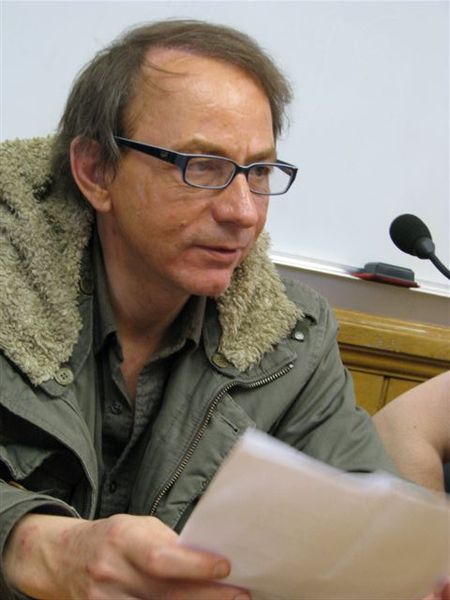
The dialectician is a kind of buffoon: one laughs at him, one does not take him seriously. ~ Friedrich Nietzsche, Twilight of the Idols Continue reading

The dialectician is a kind of buffoon: one laughs at him, one does not take him seriously. ~ Friedrich Nietzsche, Twilight of the Idols Continue reading

Dans son roman, Soumission, Michel Houellebecq se réfère à une thèse de philosophie, soutenue à l’université catholique de Louvain-la-Neuve, signée Robert Rediger, et intitulée Guénon lecteur de Nietzsche. Au cours des derniers mois, j’ai fait de nombreux efforts pour traquer une copie. Continue reading

In his novel, Submission, Michel Houellebecq refers to a philosophy dissertation, held at the Catholic University of Louvain-la-Neuve, entitled Guénon lecteur de Nietzsche [Guenon Reader of Nietzsche] by Robert Rediger. Continue reading

A man approaches to this Ideal not by eliminating the feminine principle but rather by uniting with it in the Spiritual Marriage. Continue reading

When I had an inclination to philosophy, I did not fall into the hands of any sophist. ~ Marcus Aurelius Continue reading

to see whether one finds in oneself that natural disgust for vulgarity and for every base interest, that will for a voluntary, clear discipline, that ability to freely establish “values” and to achieve them without giving up whatever the cost, those values that define the Overcomer, the man not broken among so many things that are broken today. Continue reading

Nietzsche’s claim to fame is as a psychologist. In that, he can be very insightful in exposing hypocrisy, ressentiment, and the like. In that as a side effect, he is a creator of the modern world which has replaced discussion and dialog with accusation. Today, a man’s ideas are barely considered, but instead his motives are questioned; certain points of view are even considered to be “mental illnesses”. Continue reading
This is final section of an article by Guido de Giorgio, titled The Instant and Eternity, first published in Diorama Filosofico in 1939. How many of Dante’s admirers are there who are not content in glorifying his verses or expression—something absolutely exterior and superficial—but who in applying the doctrine, the … Continue reading

An ecstasy of joy, whose immense tension sometimes dissolves into a stream of tears, and whose pace is sometimes like a storm and sometimes becomes slow; a state of being completely beside oneself, yet with the clearest consciousness of an infinite number of fine tremors and wave-like vibrations running down to the very toes; a depth of happiness, in which all that is painful and dark, does not act as a contradiction but as a necessary condition, a challenge, as a necessary colour within such an abundance of light; an instinct for rhythmic proportions, which spans extensive realms of form — the extension, the need for an all-encompassing rhythm ins almost a criterion for the power of inspiration, a kind of compensating counter-force against its pressure and tension. Continue reading